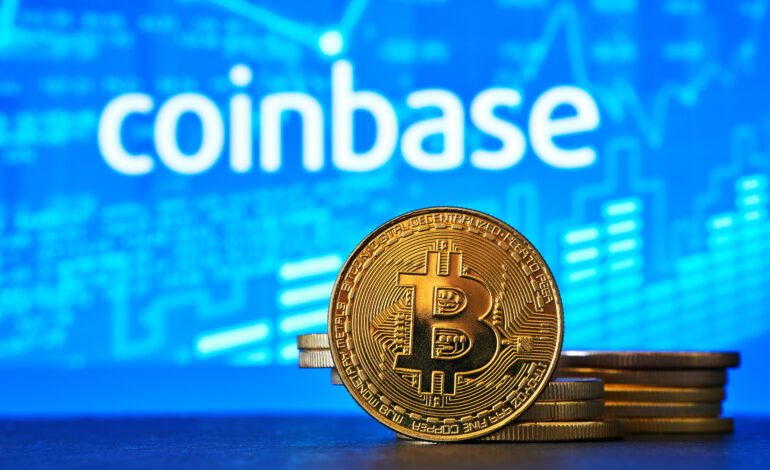
Introduction: Rise of DeFi
DeFi grew fast to be one of the most disruptive sectors in today’s FinTech landscape. DeFi platforms carry a variety of financial activities using blockchain technology and smart contracts, hence allowing users to borrow, lend, and even trade—away from intermediation by traditional parties such as banks or brokers. This has, in fact, democratized access to financial services, especially for people in regions with traditional banking that is out of reach or inefficient.
Regulators have also noticed the rise of DeFi and are wrestling with whether, and how, to oversee this nascent sector. Over the last couple of years, the U.S. Securities and Exchange Commission has been very vocal about the necessity of regulation over DeFi platforms, citing investor protection and market stability as major concerns. That regulatory push has met plenty of pushback from a variety of stakeholders, including major cryptocurrency exchanges like Coinbase.
Coinbase’s Balancing Act
Actually, the clearer and fairer regulatory frameworks of the sphere are what Coinbase—one of the largest and most influential cryptocurrency exchanges in the world—is very much at the vanguard of. Its recent appeal to the SEC to reconsider a proposed rule change that would put DeFi squarely under its jurisdiction is a little dramatic and shows the increased tension between innovation and regulation in the crypto industry.
At the heart of the matter for Coinbase is the fact that the approach taken by the SEC today could significantly inhibit innovation and limit DeFi’s potential. The company contends that a more granular and collaborative framework of regulation—one that recognizes the unique characteristics of DeFi and, for that very reason, fosters its growth in a manner that also responses to legitimate concerns around investor protection and market integrity—needs to be set.
The SEC’s Proposed Rule Change: What Is It Really About?
The proposed rule change by the SEC is really about broadening the meaning of “exchange” under the Securities Exchange Act of 1934 in order to capture platforms facilitating the trading of cryptocurrencies and other digital assets, including DeFi protocols. Under this expansion, a wide array of DeFi platforms would be brought under the regulatory provision of the SEC and be required to register as exchanges obliged to a variety of regulatory requirements.
Key Components of the Rule Change
- Proposed Rule Change Widens Definition of ‘Exchange’ to Include DeFi Protocols That Match Digital Asset Buyers and Sellers: The proposed change broadly defines an ‘Exchange’ as not only the traditional trading platform but also any DeFi protocol matching buyers and sellers of digital assets.
- In consequence, DeFi platforms that fall within this widened definition will now be mandated to register with the SEC as an exchange, henceforth making them beholden to a host of regulatory obligations, including requirements for disclosure and surveillance.
- Investor Protection Measures: As claimed by the SEC, the amendments in the regulation are only appropriate to afford investors sufficient protection in the quickly developing DeFi space, with risks being perceived higher for fraud and market manipulation.
Coinbase’s Concerns: A Threat to Innovation?
Coinbase has expressed multiple concerns regarding the proposed rule change by the SEC, arguing that it could have far-reaching impacts on the DeFi space and the broader cryptocurrency industry. The company further stresses that, as written, the rule change might stifle innovation and hinder the continued development of new technologies that could one day change the landscape of finance.
Potential Harms
- Stifling of Innovation: The SEC could stifle this incredibly innovative sector—again, one that is doing quite well in terms of openness and experimentation—by coming down with the hammer of traditional regulatory frameworks on top of DeFi platforms. It will be hard for a majority of DeFi protocols, which are mostly open source and community-driven, to adhere to stringent requirements imposed on traditional exchanges.
- Barriers to Entry: Most DeFi projects are smaller in scale and have limited budgets, therefore often relying on community contributions. For this reason, it’s really hard for such projects to meet SEC registration and compliance requirements. Entry remains hard, therefore reducing diversity and vibrancy in the DeFi ecosystem.
- Reduced Access: Such regulatory burdens would mean reduced access of DeFi platforms to a great extent, especially among users who reside in areas where traditional financial services are lacking. This could quite easily disappoint one of the key promises of DeFi: providing open and decentralized access to financial services.
Industry-Wide Reaction: A Polarized Space
In a less clear reaction to the proposed rule change are the general members of the crypto and DeFi communities. Some of them realize that the need necessitates regulation in serving both investors and the integrity of the markets. They accept the point but tend to share concerns recently expressed by Coinbase, where comments may seem overzealous toward a misguided application of regulation.
Support for Regulation:
- Investor Protection: One level of arguing in the debate of the suggested rule change being put forward by the SEC is that investors are to be saved from falling into the pitfalls of DeFi, such as fraud, hacking, and market manipulation. This move will bring the DeFi platforms under regulatory purview, making it mandatory for them to be transparent and fair.
- Proponents also argue that regulation is important for market stability, with the growth of the DeFi space and major capital allocations. In view of this, since DeFi platforms are regulated as security exchanges, the SEC can take steps toward preventing systemic risks and allowing the smooth running of markets.
Opposition to Regulation:
- Innovation concerns: Coinbase, several other dissenters, and innovators strongly believe that the proposed rule change by the SEC will end up killing innovation and limiting the potential of Defi. The argument is that regulation cannot possibly be one-size-fits-all considering this is the growing sector, with blistering innovation at the core of its products and solutions.
- Regulatory Overreach: A lot of industry stakeholders believe that this is nothing short of regulatory overreach by the SEC; the institution is reaching out well beyond its traditionally defined mandate. Their argument has it that the SEC’s interest is best retained within the traditional financial markets, which are fundamentally different from the decentralized protocols that a segment of this has set out to innovate on.
With regard to advancement of the proposed rule change by the SEC, the clear sentiment is that a balance is crucial for DeFi, as well as the broader crypto space. Regulators and industry players will dialogue to have a constructive way of building a regime that can rein in overregulation while putting investor protections ahead of everything else.
Compromises that could be made:
- Tailored regulation: Yet another possible pathway forward is the creation of a tailored regulatory regime that recognizes the special properties of DeFi, this time through changes to specific rules or guidance, applicable to DeFi platforms that pose major issues but without placing the same burden on them as those of traditional exchange regulations.
- Industry Collaboration: There is a need for effective collaboration between regulators themselves and also with industry participants in order for the regulatory framework to perform its role effectively. By engaging with the DeFi community, SEC can understand the technology in a better way, its possible benefits, and thereby come up with more informed and balanced regulation.
- Phased Implementation: The phased approach to regulation itself may be a plausible way in which the DeFi sector could be allowed to develop further before intervening with a gradual regime of regulation. This would give time both to regulators and industry players to adapt to the new regime and make this one effective without killing innovation alive in the market.
Conclusion: The Future of DeFi and Regulation
The proposed rule change by the SEC and the call for a reconsideration by Coinbase represents a debate in progress, which in turn speaks to the complex, evolving relationship between regulation and innovation in the crypto space. As DeFi continues to grow and mature, it picks up the eyes of regulators. But how does one come up with a regulatory framework that fits the growth needs of the sector while respecting the legitimate concerns around investor protection and market stability?.
The Coinbase appeal to the SEC may become a leading example of how the industry will need to proceed with care and collaboration. This collaboration will guide regulators and industry members toward establishing a proper regulatory environment that fosters innovation, protects investors, and ensures the long-term sustainability of the DeFi ecosystem. What will be laid this year and next are building blocks that portend the future of finance overall and will be determinative of how the financial system functions across the world.
Key Takeaways
- DeFi’s Growth and Impact: Decentralized finance is changing the face of finance: with newfound, innovative financial services and without traditional intermediation.
- SEC’s Regulatory Push: The proposed rule change has brought out an attempt by the SEC to bring decentralized finance platforms under its regime. This has kick-started a debate within the crypto industry.
- Coinbase’s Stand: Coinbase countered by calling the SEC to reconsider, saying such a rule change would stifle innovation and put a high entry barrier for smaller DeFi projects.
- Reactions from the Industry: The industry has divided sentiments, with some camped on the regulation of the space for investor protection while others witnessed killing innovation.
- THE WAY FORWARD: Striking this balance in the regulatory regime that empowers invention yet mollifies real concerns is the direction the future of DeFi will need to go.
The dynamism of DeFi and regulation continues to be a center of the debate and will pose challenges and opportunities for the industry and the regulators.




